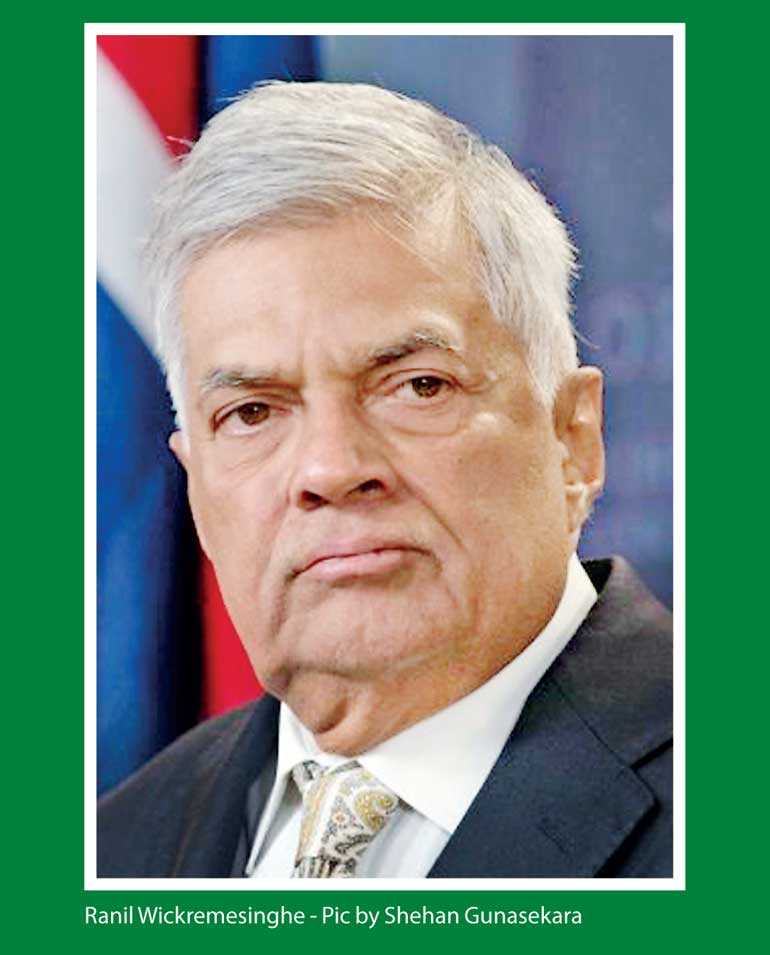A Brief Colonial History Of Ceylon(SriLanka)
Sri Lanka: One Island Two Nations
A Brief Colonial History Of Ceylon(SriLanka)
Sri Lanka: One Island Two Nations
(Full Story)
Search This Blog
Back to 500BC.
==========================
Thiranjala Weerasinghe sj.- One Island Two Nations
?????????????????????????????????????????????????Wednesday, October 31, 2018
Stand with Ranil: Fight against Sri Lanka’s Bolsonaro Moment

 Wednesday, 31 October 2018
Wednesday, 31 October 2018The appointment of Mahinda Rajapaksa as Prime Minister at the discretion of President Sirisena was unconstitutional.
The argument advanced by people like Professor G.L. Peiris, that the withdrawal of the UPFA from the Joint Government unseats the sitting Prime Minister, is inadequate, due to a very important Constitutional provision – that it is the person with a clear Parliamentary majority who is entitled to be Prime Minister.
As many commentators have noted by now, Sirisena had other options if he was so keen to unseat Prime Minister Wickremesinghe, such as defeating the 2019 Budget.
As this writer noted in an article written hours after the ‘coup’ happened, there is a precedent to this kind of power game, in the November 2003/February 2004 decisions made by President Kumaratunga.
 However,
as clarified in the same article, Kumaratunga did not violate a single
provision in the Constitution. There was absolutely no limit on
executive powers at the time.
However,
as clarified in the same article, Kumaratunga did not violate a single
provision in the Constitution. There was absolutely no limit on
executive powers at the time.Today, we are in post-19th Amendment Sri Lanka, and let’s not forget that the President is obliged, by oath, to abide by the Constitution of the Democratic Socialist Republic of Sri Lanka.
Sirisena has clearly not done so, and has hence grossly violated the Constitution.
At this point of time, all citizens of Sri Lanka need to take stock of the violent consequences of Sirisena’s actions.
One fellow citizen is dead. A few others injured in the same incident are in serious condition.
State television and radio corporations have been taken over, using mob violence, in the most undemocratic, un-ceremonial and shameless manner.
Reports also indicate that Gotabaya Rajapaksa, a man known for his violent disposition, is behind organising violent mobs to take control of State-owned departments, ministries and corporations. Individuals known for their disregard for the rule of law such as Kamal Gunaratne and Suresh Saley have been given responsibilities in these violent missions.
If no action is taken and Mahinda Rajapaksa remains Prime Minister, it will set an extremely bad precedent, that political power can be grabbed through shady deals and coups, with zero regard for the Constitution of the 2nd Republic and the rule of law.
If Sri Lanka and Sri Lankans can be proud of one thing, it is our system of democratic governance. Irrespective of the multitude of problems associated with that system, Sri Lanka has had a functioning democracy, elected governments, structures of local government, and broad conversations on issues such as the devolution of power. Even at the height of a secessionist war, this ‘system’ remained functional.
Under the present circumstances, the first priority that we should all stand for, is for Parliament to be reconvened at the earliest possibility.
Once Parliament is reconvened, the person with a clear parliamentary majority can remain Prime Minister.
Supporters of Mahinda Rajapaksa MP should clearly take note of an absolutely vital point: that this is NOT about Mahinda becoming Prime Minister. Instead, this is about our democracy, our Constitution, our institutions, and the rule of law.
The recent descent into violence, mob attacks at State bodies, and violence against private citizens are clear signs that the very epicentre of democratic governance is at risk.
This writer, like many others, upholds a stern critique of neoliberal political models. However, it is necessary to remember that no such critique can be advanced if our democracy and institutions are at stake.
Hence the vital importance of reconvening Parliament.
A clear risk of reconvening Parliament is that violent mobs directed behind-the-scenes by a ‘caucus of evil’ composed of Gotabaya/Kamal Gunaratne/Suresh Saley and others, might prevent MPs from entering Parliament premises. This writer hears in the political grapevine that this is currently a key concern at Speaker’s Office.
The problem, then, is of very high magnitude. It is therefore a national priority to stand with Prime Minister Ranil Wickremesinghe and call for Parliament to be reconvened.
It is also important for everyone with a concern for Sri Lankan democracy to resolutely stand against the mob violence currently being unleashed in Colombo.
Our international partners, except, unfortunately, China and Iran, have done it right, by supporting Prime Minister Wickremesinghe.
Given the sorry nature of this power grab, and even if Mahinda Rajapaksa eventually succeeds in demonstrating a Parliamentary majority, it is essential for a general election to be called at the earliest possibility.
This is due to one single reason: we do not want State power – in one of Asia’s oldest democracies and in a place where the Constitution and the Rule of Law ‘matter’ – to go to the hands of vain and mediocre village thugs whose only priority is to establish a dynastic dictatorship.
As Brazil is hit by the Bolsonaro effect, we must never lose sight of the dire consequences of supporting extremism, majoritarian nationalism, all hues of chauvinism, and leaders who thrive on discriminatory discourses. We do not want a Sinhala-Buddhist Bolsonaro to rule over us, limit our fundamental rights and freedoms, and dehumanise many of us who do not fall into what they consider as superior.
(The writer is a political analyst and the author of ‘Decolonising Peacebuilding: Managing Conflict from Northern Ireland to Sri Lanka and Beyond’.)

